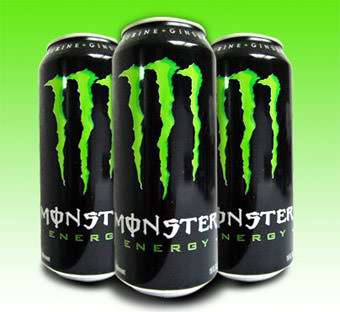Coffee Research Casts Further Doubt on Warnings About Energy Drinks
How can 240 milligrams of caffeine per day be lethal when 750 is healthy?

In a New York Times article posted on Monday, Aaron Carroll, a professor of pediatrics at Indiana University School of Medicine, reviews the epidemiological research on the health effects of coffee consumption and finds little evidence of harm. In fact, there is pretty strong evidence suggesting that drinking coffee is good for your health. The research is especially interesting in light of recent attempts by various news outlets, conspicuously including the Times, to stir up alarm about the allegedly lethal dangers of caffeine in energy drinks, which contain less of the stimulant per ounce than coffee does.
During the last few years, New York Times business reporter Barry Meier has repeatedly warned that energy drinks can trigger fatal cardiovascular reactions. Yet as Carroll notes, a 2013 meta-analysis of "36 studies involving more than 1,270,000 participants" that looked at the relationship between coffee consumption and cardiovascular health "showed that those who consumed a moderate amount of coffee, about three to five cups a day, were at the lowest risk for problems," while "those who consumed five or more cups a day had no higher risk than those who consumed none." An eight-ounce cup of coffee (the usual definition in these studies) typically contains between 100 and 200 milligrams of caffeine. Assuming an average of about 150, three to five cups contain 450 to 750 milligrams of caffeine. That is the level of daily consumption associated with the lowest cardiovascular risk in these studies.
By comparison, eight ounces of Monster energy drink contains 80 milligrams of caffeine, about half as much as coffee. A 16-ounce can contains 160 milligrams, and a 24-ounce can contains 240. In light of the epidemiological data, the notion that two 24-ounce cans, drunk a day apart, would be enough to cause a fatal cardiac arrythmia through "caffeine toxicity"—as alleged in the case of Maryland teenager Anais Fournier—seems implausible, to say the least. Even the two-day caffeine total (480 milligrams) is toward the low end of the healthiest range for daily consumption in the coffee studies. If that amount of Monster energy drink were potentially lethal, drinking a tall (12-ounce) Starbucks coffee on each of two consecutive days, thereby consuming 520 milligrams of caffeine, would be even more dangerous. I may have missed them, but I do not recall any lawsuits claiming that Starbucks is killing teenagers by selling them coffee.
Fournier suffered from Ehlers-Danlos Syndrome, a connective tissue disorder that affects blood vessels and the heart. If that condition made her especially vulnerable to the effects of caffeine, it is puzzling that she "had no restrictions on her diet or physical activity," as The Detroit News reports. Monster's lawyers argue that her pre-existing health problems caused her death and that its product was not even a contributing factor. In any case, if this sort of thing happened often enough to be a forseeable effect of consuming caffeine, it should be reflected in the epidemiological studies of coffee drinkers. Instead they look, if anything, healthier than abstainers, even when consuming the caffeine equivalent of three 24-ounce energy drinks a day.


Show Comments (52)